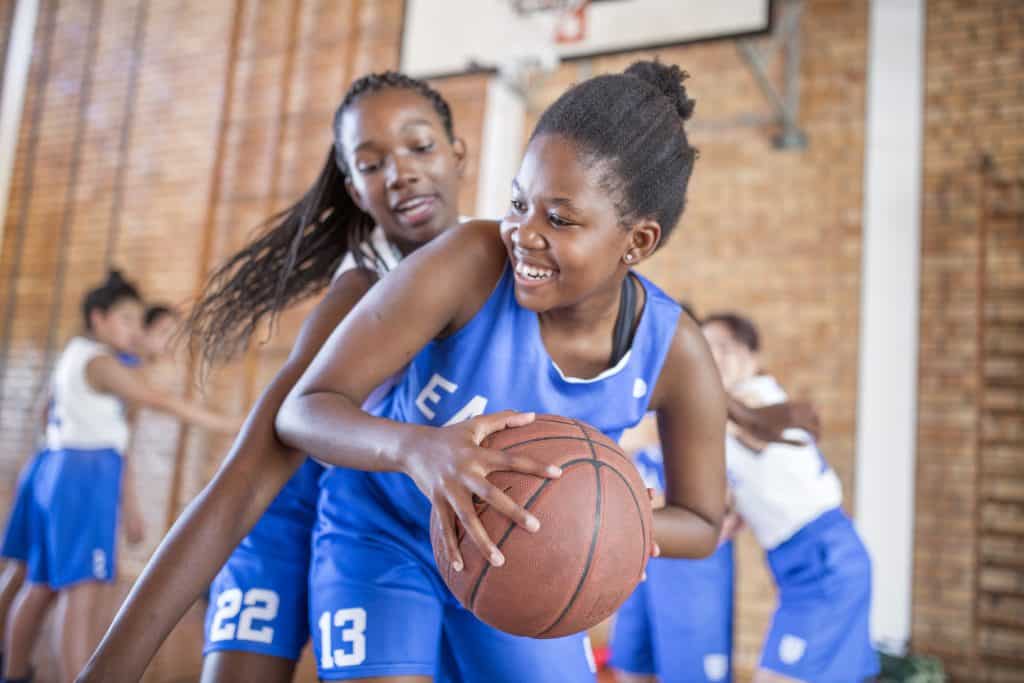Keeping young, healthy hearts in the game

Parents of young athletes spend countless hours on the sidelines cheering for them throughout the year. Football, softball, basketball, track – and other indoor and outdoor sports are fun and healthy. But when parents read headlines about young adults collapsing on basketball courts or football fields from heart conditions, it naturally makes them worry. Could it happen to my child? How can this be prevented? Should preventive cardiac screenings take place at sports physicals?
The American Academy of Pediatrics (AAP) and the American Heart Association (AHA) have screening guidelines for participation in sports. This includes a series of questions related to current symptoms for the child, previous history of symptoms or heart issues, and family history.
“And every sports physical should include a very careful and thorough examination of the heart,” explains Hennepin Healthcare pediatrician Leslie King-Schultz. “This should include questions surrounding the history of COVID infection, as it’s a virus that can cause heart inflammation.”
Dr. King-Schultz said that in Europe, it is more routine practice and recommended getting an electrocardiogram (ECG) for all athletes prior to sports participation to screen for heart rhythm abnormalities. However, there are challenges to this approach because there are many false positives and difficulties in the interpretation of pediatric ECGs. As a result, the AAP and AHA have decided not to recommend universal ECG screening and instead use ECG when there are other risk factors identified in the exam or history. This point remains controversial in the world of sports medicine.
“Even with universal ECG, there may still be cases of sudden cardiac events that would not be picked up by this method,” she said. “Ultimately, the cardiac events we read about are extremely rare, and sports participation is very safe for children, offering many health and social benefits.”
Participating in sports improves physical health and can help reduce the risk of childhood obesity, which has been on the rise in recent years. Sports participation also teaches valuable lessons about teamwork, expands social networks, and boosts self-esteem for children.
“We would rather see healthy children involved in sports than being sedentary for hours playing video games or on their phones,” said Dr. King-Schultz. “As with everything, balancing these activities so that kids get exercise and healthy social interactions is key.”
She also emphasizes the importance of establishing a good relationship with your child’s primary care provider who will answer your questions and partner with you on your child’s healthcare journey.
“It’s important that a provider with a good understanding of your child’s health history completes his or her sports physical so that any concerns are addressed.”
Find more information about back-to-school physicals.

